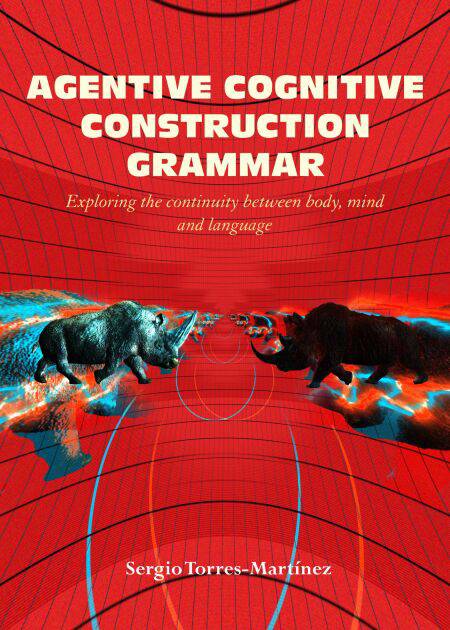
- Retrait gratuit dans votre magasin Club
- 7.000.000 titres dans notre catalogue
- Payer en toute sécurité
- Toujours un magasin près de chez vous
- Retrait gratuit dans votre magasin Club
- 7.000.000 titres dans notre catalogue
- Payer en toute sécurité
- Toujours un magasin près de chez vous
Agentive Cognitive Construction Grammar: Exploring the Continuity between Body, Mind, and Language EBOOK
Agentive Cognitive Construction Grammar, #1
Sergio Torres-MartínezDescription
Speaker-meaning (parole) has been given scant attention in the context of both Cognitive Linguistics and Construction Grammar in the belief that it offers no systematic means to understand the linguistic system (langue). The overall goal of my endeavor here is to punctuate and perturb this disconnect by claiming that it is actually speaker-meaning what provides the most promising avenues of inquiry as regards the connection between mind and language. Regrettably, the picture of the human mind created by neuroscience, psychology, and cognitive science thus far is that "[we] are machine[s], that [b]iology and other people have programmed [and that] are in constant need of enhancement." (Di Paolo et al., 2017: 1). On this view, humans are defined as "quasi-automaton[s], driven by biological impulses and the external environment" (Di Paolo et al., 2017: 1). In contrast, the present account defends an idea of mind whereby representation is not "an irreducible psychological kind" (Hanna, 2015: 3), which presupposes an active role of perception as a means to explain intentionality. The main consequence of this proposal is that the content of language does not necessarily reflect a pre-existing intentional content of thought. This is why intentional content is considered in this book as an expression of the extended mind (comprising environmental and bodily processes), and not a brain-only phenomenon. As a result, language is used as a tool to reconstruct both perceptual and representational categories during specific events. Since language is an object that "comes about as the result of shared norms, values, and conventions in a socially definable community" (Seuren, 2009: 66), its purpose is to enable agents to either attune or disattune in a social reality. As we shall see in the rest of this book, representation is not privately "structured and 'stored' in individuals' bodies" (Enfield, 2015: 103; Kockelman, 2017), but a collective phenomenon for the shared construction of the meaningful, that is, "something that is significant beyond itself, and subject to normative evaluation according to that significance" (Haugeland, 1995: 232).
Spécifications
Parties prenantes
- Auteur(s) :
- Editeur:
Contenu
- Langue:
- Anglais
- Collection :
Caractéristiques
- EAN:
- 9781393926276
- Date de parution :
- 07-01-21
- Format:
- Ebook
- Protection digitale:
- Adobe DRM
- Format numérique:
- ePub







